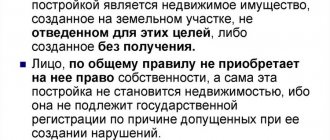ST 224 of the Criminal Code of the Russian Federation.
1. Careless storage of a firearm, which created conditions for its use by another person, if this resulted in the death of a person or other grave consequences, is punishable by a fine in the amount of up to one hundred thousand rubles or in the amount of the wages or other income of the convicted person for a period of up to six months, or compulsory labor for a term of up to three hundred and sixty hours, or correctional labor for a term of up to one year, or restriction of freedom for a term of up to one year, or arrest for a term of up to six months.
2. The same act, resulting in the death of two or more persons, is punishable by compulsory labor for a term of up to four hundred eighty hours, or correctional labor for a term of up to two years, or imprisonment for a term of up to two years.
Commentary to Art. 224 Criminal Code
1. The subject of the crime is a firearm.
2. The objective side is characterized by an act (action or inaction) in the form of careless storage of firearms, i.e. storage in violation of established or generally accepted storage rules. A mandatory feature of such a weapon is that it is in the possession of a person legally.
3. The crime is completed from the moment the second of two consequences occurs: primary - the use of a weapon by another person and remote - the consequences resulting from such use: the death of a person (including due to suicide) or other serious consequences (theft of a weapon, the commission of a crime, etc.). p.) (in part 1) or the death of two or more persons (in part 2).
4. Special subject of the crime: a person who legally owns a firearm.
Criminal liability for negligent storage of firearms
Key words: negligent storage, criminal liability, criminals, equipment, powder charge, illegal weapons trafficking
In Art. 244 of the Criminal Code of the Russian Federation provides for criminal liability for careless storage of firearms. Violation of the rules for storing firearms is expressed in the failure of the owner of the weapon to comply with the rules for its storage. Thus, leaving a weapon in a public place where it will be accessible to others creates an environment favorable not only for the use of weapons by criminals, but also for causing serious consequences to civilians. The well-known Russian lawyer Hasan Borokov correctly notes that if a person has taken responsibility for storing weapons, then he must also bear criminal liability if people were injured as a result of his negligence in his duties [7].
The legislative definition of a firearm is given in the Federal Law of December 13, 1996 No. 150-FZ “On Weapons”, according to which a firearm is a weapon designed to mechanically destroy a target at a distance with thrown equipment receiving directed movement due to the energy of a powder or other charge [5].
In this crime, the obligatory feature is the presence of legal grounds for a person to own a firearm. This feature makes it possible to distinguish careless storage of firearms (Article 224 of the Criminal Code of the Russian Federation) from illegal storage of weapons and ammunition (Article 222 of the Criminal Code of the Russian Federation), where there are no legal grounds for storing firearms.
Authors P. S. Matyshevsky and I. Ya. Kozachenko believe that in case of careless storage of firearms and in the absence of permission for it, the actions of the subject should be classified as a set of crimes - under Art. 224 and 222 of the Criminal Code of the Russian Federation. Although, according to the meaning of Art. 224 of the Criminal Code of the Russian Federation, the legislator clearly states that a crime is formed if there are legal grounds for its storage, and accordingly, in the absence of such, actions must be qualified under Art. 222 of the Criminal Code of the Russian Federation. Previously, the Plenum of the Supreme Court of the Russian Federation enshrined this provision in resolution No. 5 of June 25, 1996 “On judicial practice in cases of theft and illegal trafficking of weapons, ammunition and explosives,” but this resolution has lost force, and today the regulation of actions in cases of illegal negligence there is no storage of weapons. Therefore, we believe that additions and resolution of the issue regarding the qualification of the actions of the subject in case of illegal negligent storage of firearms are necessary.
The main direct object is public safety, and the indication in the article of the presence of grave consequences and causing death allows us to talk about an additional object - the life and health of people, property. Judicial practice shows that often, along with public safety, public relations related to the life and health of people are also violated.
The subject of the crime is special: a serviceable firearm. The legislator stipulates that it is firearms that are ready for use that pose a public danger, while the storage of other types of weapons does not pose such a danger that would create the need for their criminalization. This approach cannot be called correct, because gas, bladed weapons, and ammunition can cause serious harm to human health, and therefore we consider it necessary to supplement Art. 224 of the Criminal Code of the Russian Federation, and designate gas, edged weapons, as well as ammunition as the subject of the crime.
The objective side of the crime is characterized by a violation of the rules for storing firearms, which entailed the possibility of its use by other persons. As a rule, the subject’s act is expressed in the form of inaction. It should be borne in mind that storage conditions are determined for each type of weapon, and the living conditions of various categories of owners also influence.
Storage conditions are normatively regulated by the Federal Law of December 13, 1996 No. 150-FZ “On Weapons” [5], by the Government of the Russian Federation of July 21, 1998 No. 814 “On measures to regulate the circulation of civilian and service weapons and cartridges for them on the territory of the Russian Federation” [6]. When the court makes a decision, it must be taken into account that the criteria for storing firearms are also determined by the relevant departmental acts.
The objective side also includes the consequences that have occurred, since by design the composition is material: the legislator uses the wording “the occurrence of a person’s death or other serious consequences.” The term “grave consequences” is subjectively evaluative, as the Plenum of the Supreme Court of the Russian Federation notes. The lack of detail does not allow us to talk about specific examples of such consequences, but it seems that these will be: robbery, hostage-taking with the use of firearms, causing significant material damage, incitement to suicide, etc. For each case, the issue of the presence of grave consequences is decided court with an individual approach.
Regarding the wording “grave consequences” in the doctrine of criminal law, scientists often speak out in favor of excluding the condition for the occurrence of grave consequences under Art. 224 of the Criminal Code of the Russian Federation, believing that the very fact of careless storage of firearms is sufficient grounds for initiating a criminal case. We support this position, since the main cause of the consequences is negligence on the part of the owner of the weapon; based on this, we propose to construct the main composition as formal, and as a qualifying feature to indicate the following wording: “the same act that resulted in death or other grave consequences "
The peculiarity of the causal connection between the act and the resulting consequences is that the onset of socially dangerous consequences depends simultaneously on the actions of the person who allowed the careless storage of weapons and the actions of the person who took advantage of it. Previously, we noted that the legal owner of a weapon only creates conditions for its use, although Art. 224 of the Criminal Code of the Russian Federation cannot be imputed without socially dangerous consequences occurring.
Even though serious consequences are actually caused by a third party, they are not only the responsibility of that third party, but also of the owner who negligently stored the firearm. At the same time, the direct causer of criminal harm is not always responsible for what he has done, for example, if he has not reached the age of criminal responsibility, due to insanity, etc. [2, p.8]
The subjective side of the crime in question is characterized by a careless form of guilt. When interpreting the norm literally, one gets the impression that a crime can only be committed in the form of negligence.
Some authors in their scientific studies note that indeed the form of guilt of this composition is negligence, although the crime can be committed both in the form of negligence and in the form of frivolity. This fact is due to the fact that the legislator, using the wording “careless storage of firearms,” describes not the subjective side, but the objective side, which can be characterized by the fact that a person improperly fulfills the conditions for storing weapons. We believe that the use of the term “careless” in this crime is unacceptable, since the norms of criminal law are interpreted literally, and therefore we propose to introduce the term “violation of the rules for storing firearms.”
Within the meaning of Art. 224 of the Criminal Code of the Russian Federation requires legal grounds for a person to own a firearm, and the following criteria are defined by law - citizens of the Russian Federation who have reached the age of 18 years - the subject is a sane individual who has reached the age of 18 and has the right to store firearms, that is, a special subject.
Let us note that in accordance with Article 22 of the Federal Law “On Weapons”, legal entities and citizens are prohibited from storing and using firearms found by them or transferred to them, of which they are not the owners, except in cases specified by the Federal Law. Such weapons are subject to immediate surrender to the internal affairs bodies [5].
The issue of bringing to criminal liability military personnel and employees of other paramilitary organizations for careless storage of firearms, resulting in their loss and use by other persons, if this entailed causing grave consequences, is resolved under Art. 348 of the Criminal Code of the Russian Federation, - the person entrusted with the protection of firearms is liable under Art. 225 of the Criminal Code of the Russian Federation and additional qualifications under Art. 224 of the Criminal Code of the Russian Federation is not required. In cases where a firearm is owned illegally, the person should be held accountable only under Art. 222 of the Criminal Code of the Russian Federation [3, p. 10].
Failure to comply with weapons storage standards gives rise to a large number of crimes. According to data from the Federal State Statistics Service, only for January 2021. In Russia, 2.3 thousand crimes were committed using firearms [1]. This indicator cannot be called comforting, especially considering the fact that in 2014 the punishment under Art. 224 of the Criminal Code of the Russian Federation has been tightened: Part 2 of Art. 224 of the Criminal Code of the Russian Federation provides for up to two years of imprisonment. A proposal to toughen the punishment was submitted to the State Duma after an incident in one of the Moscow schools, when a student came to school with a rifle, killed two people, and took hostages.
In our opinion, it is absolutely right that the punishment under this article has been tightened, although we assume that it could be increased, because, as Russian lawyer Sergei Zhorin said, “we need to instill a culture of storing weapons.”
Summarizing the above, we note that in the considered elements of the crime there are certain nuances and features that must be taken into account when assigning punishment, as well as the proposals and conclusions we formulated have practical significance, since in the future they can help resolve many of the gaps that arise when qualifying acts under Art. 224 of the Criminal Code of the Russian Federation.
Literature:
1. Statistics from the Federal State Statistics Service on the main indicators of crime in the Russian Federation [Electronic resource]: https://www.gks.ru/wps/wcm/connect/rosstat_main/rosstat/ru/statistics/population/infraction/
2. Zadoyan A. A. Responsibility for careless storage of firearms: article // A. A. Zadoyan. — M.: Current issues of Russian law. 2014.
3. Stepanova M. A. Careless storage of firearms: features of qualification and delimitation from related compositions: article // M. A. Stepanova. — Belgorod: Problems of law enforcement. 2021.
4. Criminal Code of the Russian Federation dated June 13, 1996 No. 63-FZ (as amended on February 7, 2017) // [Electronic resource]: https://www.consultant.ru/document/cons_doc_LAW_10699/
5. Federal Law of December 13, 1996 No. 150-FZ “On Weapons” // [Electronic resource]: https://www.consultant.ru/document/cons_doc_LAW_12679/
6. Decree of the Government of the Russian Federation dated July 21, 1998 No. 814 (as amended on May 6, 2015) “On measures to regulate the circulation of civilian and service weapons and ammunition on the territory of the Russian Federation” (together with the “Rules for the circulation of civilian and service weapons and ammunition to it on the territory of the Russian Federation", "Regulations on the maintenance and publication of the State Cadastre of civil and service weapons and ammunition for them") // [Electronic resource]: https://www.consultant.ru/document/cons_doc_LAW_19504/
7. “Legislation. RAPSI" dated 02/05/2014 // [Electronic resource]: https://rapsinews.ru/legislation_news/20140205/270653091.html
Second commentary to Art. 224 of the Criminal Code of the Russian Federation
1. The subject of the crime is a firearm.
2. The objective side is characterized by an act consisting of a violation of the rules for storing firearms, which created conditions for its use by another person. It usually consists of violating specially established or generally accepted rules for its storage. In this case, the firearm must be legally owned by the person.
The second mandatory sign of the objective side is a socially dangerous consequence - the death of a person or other grave consequences. Such consequences usually include: the commission of a crime using this carelessly stored weapon or the suicide of a person who used a carelessly stored weapon, etc. A causal connection must be established between the act committed and the resulting consequence. It should be borne in mind that the causal relationship between the act and the consequences is mediated by the actions of third parties.
The crime is considered completed from the moment the socially dangerous consequences occur.
3. The subjective side is characterized by careless guilt in the form of frivolity or negligence.
4. The subject of the crime is the owner or legal owner of a firearm who has reached the age of 16 years. A person who carelessly stored a firearm that was in his possession illegally is liable under Part 1 of Art. 222.
What storage rules must be followed?
We are talking about private individuals who have official permission from the authorized body to store firearms. In this case, the object should be located in a safe or metal cabinet specially designed for it, which will prevent free access to it by third parties. The safe should always be closed, it should be installed in isolated rooms equipped with special alarm and security systems.
Important! Representatives of regional law enforcement agencies assume control over compliance with the rules for storing firearms. They may periodically visit all registered owners to ensure compliance. In case of violation of the latter, administrative punishment is provided in the form of a fine.
Every person planning to acquire a firearm should carefully study the rules for storing it and ensure full compliance with them. Also, in the future, you should show extremely high responsibility, eliminating the possibility of accidents and unforeseen situations. This will help ensure peace of mind, as well as make it impossible for third parties to unlawfully use weapons and cause serious harm to other citizens. You should not neglect the established rules, risking being investigated in a criminal case.
Third commentary to Article 224 of the Criminal Code of the Russian Federation
1. The objective side of the crime is characterized by the following features: a) action (inaction) expressed in careless storage of firearms, which created conditions for use by another person; b) grave consequences resulting from this; c) a causal relationship between the specified action (inaction) and the resulting harmful consequences.
2. Violation of the rules for storing firearms consists of a person’s failure to comply with specially established and known to him or generally accepted rules for storing them (for example, leaving a firearm in a place accessible to other persons, transferring it to a person who does not have the skills to handle it). In this case, the person must legally own a firearm.
3. A mandatory element of a crime is the creation, as a result of careless storage of a weapon, of conditions for its use by other persons, if this resulted in grave consequences, for example, the death of a person or the infliction of serious harm to health (intentional or careless, due to an accident), the commission of a crime with the help of a weapon .
4. The subjective side of the crime is characterized by careless guilt in the form of frivolity or negligence. In our opinion, negligence in the context of this article reflects the generally careless attitude of the perpetrator towards the occurrence of grave consequences.
5. The subject of the crime is the owner or legal owner of the weapon who has reached the age of 16.
A person who carelessly stored a firearm that was in his possession illegally, if this resulted in grave consequences, is liable under Part 1 of Art. 222 of the Criminal Code. ‹Article 223.1. Illegal production of explosives, illegal production, alteration or repair of explosive devicesUp Article 225. Improper performance of duties for the protection of weapons, ammunition, explosives and explosive devices ›
According to Article 224 Part 3 of the Criminal Code of the RSFSR. Sentence of December 24, 1997 no. Jewish Autonomous Region.
Oktyabrsky District Court of the Jewish Autonomous Region, composed of presiding judge Egorov *.*., with secretary Deev *.*. with the participation of: defendant Gezehus *.*. state prosecutors, prosecutor of the Oktyabrsky district of the Jewish Autonomous Okrug Perebeinos *.*., assistant prosecutor of the Oktyabrsky district of the Jewish Autonomous Okrug Korostelev *.*., defense attorney Voloshin *.*., who provided certificate No. and warrant No., having examined in open court the materials of the criminal case against, gr. Russian Federation, secondary technical education, single, with a dependent minor child, liable for military service, not working, living, not previously convicted of committing a crime under Part 3 of Art. 224 of the Criminal Code of the RSFSR, Established by: Gezehus *.*. committed a crime of medium gravity - illegal acquisition, production, storage and transportation of narcotic drugs without the purpose of sale. The crime was committed in the village. Samara Oktyabrsky district of the Jewish Autonomous Okrug under the following circumstances established by the court. /DATE/ about 9 o'clock, Gezehus *.*. in the attic of a former store located on Mira Street I found a glass jar with a capacity of 0.5 liters with a brown liquid, which I hid in the same building, and in the evening of the same day I moved it to the building of a new store located on Mira Street, where I stored it illegal. /DATE/ from part of the liquid in a jar on the shore of a lake in the vicinity of the village, by evaporation, he illegally produced a narcotic drug - hashish oil - for personal consumption. /DATE/, leaving for Vyazemsk, on a bus on the Amurzet - Birobidzhan route, a manufactured narcotic drug - hashish oil in the amount of 1.7 grams, as well as a glass jar with the remaining brown liquid, which contained 100 grams of the narcotic drug - hashish oil He took it with him, where at the “Ostryak” checkpoint the specified narcotic drugs in the amount of 101.7 grams were confiscated from him. At the court hearing, defendant Gezekhus *.*. He fully admitted his guilt in the charges brought against him, repented, and showed to the court that in early September 1996, in the attic of an old store, he found a 0.5 liter glass jar containing a brown liquid. He guessed that the jar contained a narcotic drug and decided to take it for himself for personal consumption. He hid the jar, in the evening of the same day he took the jar and hid it in the grass near the new store. /DATE/ he took the jar with liquid and from the part of the lake, by evaporation, he made a narcotic drug in order to try what it was. /DATE/ he was on On a regular bus he went to Vyazemsk, and took a jar of narcotic drugs and the narcotic drug he had prepared with him in his bag. During the inspection, at the “Ostryak” checkpoint, narcotic drugs were confiscated in the presence of attesting witnesses and sealed. According to the testimony of the witness FULL NAME4, /DATE/, read out with the consent of the parties, while on duty at the “Wit” post during the inspection of Gezekhus *.*. A matchbox with tobacco mass with the smell of cannabis was found in the left pocket of the trousers; a matchbox with tobacco mass and a glass jar with a metal lid containing a brown substance were also found in the travel bag. Gezehus explained that everything belongs to him for personal use. (ld.13) According to the testimony of the witness FULL NAME5, /DATE/ read out with the consent of the parties, he was traveling on a regular bus to the city of Birobidzhan. At the "Ostryak" checkpoint, the bus was stopped by police officers; he was invited as a witness during the search of an unknown man. During the search, a matchbox of tobacco with a specific odor and a glass jar of liquid were found in the guy’s travel bag. During the personal search, a matchbox of tobacco with a specific odor was also found in the trousers. The man explained that the seizure was a narcotic drug, everything belonged to him for personal use. He found a jar of narcotic drugs in the village of Samara. This man gave his full name. I had my passport with me. (case sheet 16-17) Wines of Gezehus *.*. the commission of a crime is confirmed by the documents examined at the court hearing: the protocol of the personal search of Gezekhus *.*., his belongings /DATE/, during which it was discovered: in the bag, gray tobacco mass in a matchbox with a specific odor; in the left pocket of his trousers there is a matchbox with a gray tobacco mass with a specific smell; in the bag there is a 0.5 liter glass jar with a dark green-dirty liquid. Gezehus explained that the jar contained hashish, which he found in the village of Samara. (ld.3) expert conclusion No., according to which the liquid in the glass jar is a narcotic drug - a solution of hashish oil in an organic solvent, the weight of the narcotic substance in the solution was 100 grams. The tobacco mass seized from Gezekhus from his windbreaker pocket and trouser pocket contained a narcotic drug - hashish oil, the weight of which was 0.5 grams and 1.2 grams, respectively. The total weight of the narcotic drug, hashish oil, was 101.7 grams. (ld.7-10) Assessing the testimony of witnesses FULL NAME4, FULL NAME5 read out at the court hearing, the court notes, h.F.I.O. and together with the examined written evidence, including the testimony of the defendant Gezehus, establish the same facts. For these reasons, the court came to the conclusion that they had no objective reasons to incriminate the defendant Gezehus *.*., and he himself to incriminate himself, and therefore recognizes their testimony as reliable and truthful. The court considers the totality of the above evidence sufficient to find the defendant guilty of committing a crime. Actions of Gezehus *.*. qualified correctly according to Art. 224 Part 3 of the Criminal Code of the RSFSR as the acquisition, manufacture, storage and transportation of narcotic drugs without the purpose of sale. In accordance with Art. 7.1 of the Criminal Code of the RSFSR, the crime of which Gezekhus *.*. is accused was recognized as a crime of medium gravity. When assigning punishment, the court takes into account the nature and degree of public danger, the category of gravity of the crime committed, the circumstances of the crime, and the mediocre personality characteristics of the defendant. The court recognizes as a mitigating circumstance the full recognition of one’s guilt and repentance for one’s actions. The court does not see any circumstances aggravating Gezekhus *.*.'s punishment. Taking into account the above, the court considers that the punishment for Gezehus *.*. must be appointed within the sanction of Art. 224 part 3 of the Criminal Code of the RSFSR. Taking into account the mitigating circumstances and the absence of aggravating circumstances, the court considers it possible to apply *.* to Gezehus. conditional sentence, since he considers it possible to correct him without actually serving his sentence and isolating him from society. In accordance with paragraph 6 of the Resolution of the State Duma of the Federal Assembly of the Russian Federation of December 24, 1997 No. 2038-II of the State Duma “On declaring an amnesty,” conditionally convicted persons are subject to release from punishment. Based on the above, guided by Articles 303-304, 307-309 of the Code of Criminal Procedure of the Russian Federation, the court sentenced:
Object and subject
Careless storage of firearms is a crime that impinges on public relations associated with the safe handling of weapons. The subject of the act is a specific object of the material world. They are exclusively firearms.
It must be maintained in conditions that ensure safety, security and do not allow unauthorized access by outsiders. The storage procedure defined in Federal Law No. 150 is specified in the Rules for the circulation of weapons and ammunition on the territory of the Russian Federation, approved by Government Decree No. 814 of 1998.
Subjective part
The crime is committed by the subject through negligence. Due to the fact that a mandatory element of the offense is the occurrence of grave consequences, the guilt of a person is determined by his attitude towards them.
The age of responsibility under Article 224 is 16 years. The subject of a crime can only be a sane individual who legally possesses a weapon. In case of unlawful possession of the subject of a crime, his actions are qualified under Article 222. Additionally, sanctions 224 are not imposed.
Additionally
An entity whose responsibilities include the protection of weapons is held accountable under Article 225 for careless storage. Art. 224 does not apply in this case. In Art. 225 provides for liability for failure to fulfill the duties assigned to a person. Unlike Article 224, a mandatory feature of this offense is the occurrence of not only grave consequences, but also the theft or destruction of weapons.
If a person acted not carelessly, but with intent, then he is recognized as an accomplice in an intentional crime. His behavior in this case does not fall under Article 224. We are talking, in particular, about situations where a citizen deliberately created conditions under which an outsider gained access to a weapon for its subsequent use for illegal purposes.
The crime provided for by norm 224 is considered an act of minor gravity.







